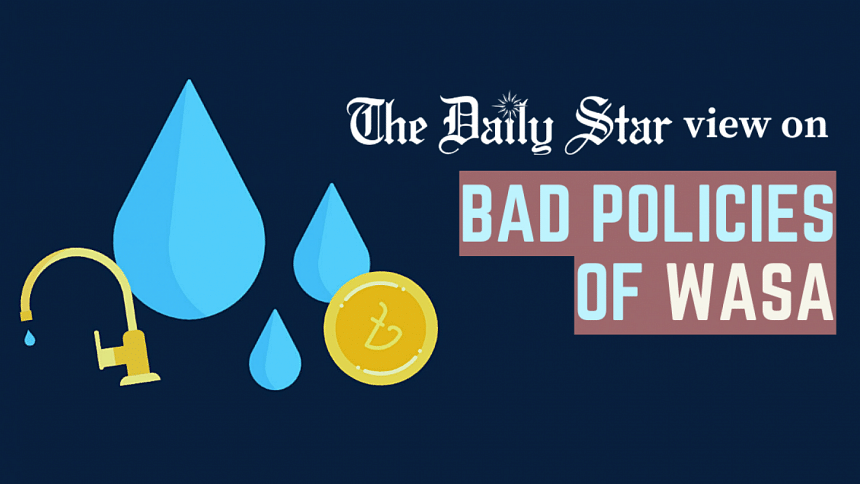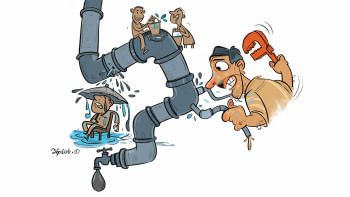Why should consumers pay for Wasa’s bad policy?

We're concerned to learn about the amount of debt taken by Dhaka and Chattogram Wasa over the last one decade to fund projects meant to improve their overall service. According to Prothom Alo, while Dhaka Wasa has taken up seven such projects taking Tk 21,000 crore as foreign loan, Chattogram Wasa has undertaken four projects with foreign loan amounting to Tk 6,288 crore. Although some of the projects have been completed by now, their effect has been mostly limited thanks to mismanagement and poor planning. Experts fear that even the projects that are now underway are also unlikely to bear much fruit.
Meanwhile, both the Wasa administrations are repeatedly raising water tariffs despite their generally poor services. Dhaka Wasa, for example, has increased its water tariff a total of 15 times since 2009.
The question is, why are they burdening consumers with increased water tariffs, and also putting pressure on our economy by taking up these big projects, if they cannot deliver expected results? Take Dhaka Wasa's Padma-Jashaldia Water Treatment Plant (phase-1) project, which was completed three years ago. The Tk-3,670-crore undertaking was meant to ensure better water supply to some parts of the capital. But one-third of the plant's production capacity reportedly remains unused, due to a lack of pipelines. Now, Dhaka Wasa wants to take up another project to solve this problem!
The condition of other ongoing projects is also not much different, as many have had their deadlines extended several times while their costs also escalated over the last few years. One of them is the Dhaka Environmentally Sustainable Water Supply project, launched in October 2013, which is still incomplete. Since all these projects have been implemented or are under development with foreign debt, the Wasa authorities are required to pay off loans in big installments. Reportedly, in the FY 2021-22, Dhaka Wasa's annual loan installment amount was Tk 400 crore, and it will increase further in the coming years. The question is, can they burden the consumers with increased water tariffs to pay off loans? Definitely not.
Both Dhaka and Chattogram Wasa have taken up such projects despite them not being realistic or sustainable from an economic point of view. They should be held accountable for their inefficiency and failures. The two institutions must stop increasing water tariffs to make up for their own mismanagement, and find a way to repay loans based on discussions with all the stakeholders.

 For all latest news, follow The Daily Star's Google News channel.
For all latest news, follow The Daily Star's Google News channel. 







Comments